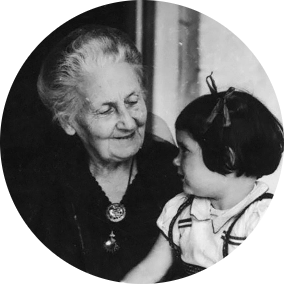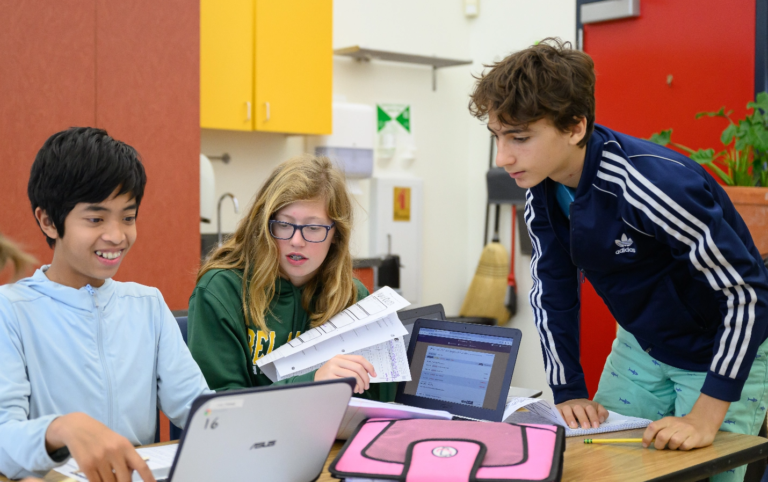
Montessori Secondary Programs
Montessori Secondary programs, for Middle and High School students ages 12 – 18, integrate rigorous academic studies with purposeful work, preparing teenagers to become contributing adult citizens who are self-confident and possess skills needed to thrive in society.
The new developmental stage of adolescence involves different educational needs than those of the Elementary stage. Montessori Secondary Programs work with the developmental essence of adolescents to help them live full, vital lives. The approach responds to the unique developmental changes of this stage, which include:
Montessori programs for adolescents offer thoughtful environments and experienced teachers attuned to these needs, safeguarding the young learners’ well being while preparing them for adulthood.
- Physical: Adolescents experience a period of tremendous physical and neurological growth.
- Emotional: They experience self-awareness and self-criticism, emotional ups and downs, and egocentrism. They feel an increased desire for autonomy, along with a susceptibility to peer pressure. It is a time characterized by a tendency toward courage and creativity.
- Social: Adolescents seek solidarity with peers and crave greater independence from adults as they establish their own identity. They are concerned with human welfare and dignity, and may exhibit novelty-seeking and risk-taking behaviors as a response to a tendency to express courage and creativity.
- Cognitive: Adolescents are critical thinkers who persistently ask “why.” They are creative, and have the ability to reason and debate.
Montessori programs for adolescents offer thoughtful environments and experienced teachers attuned to these needs, safeguarding the young learners’ well being while preparing them for adulthood.
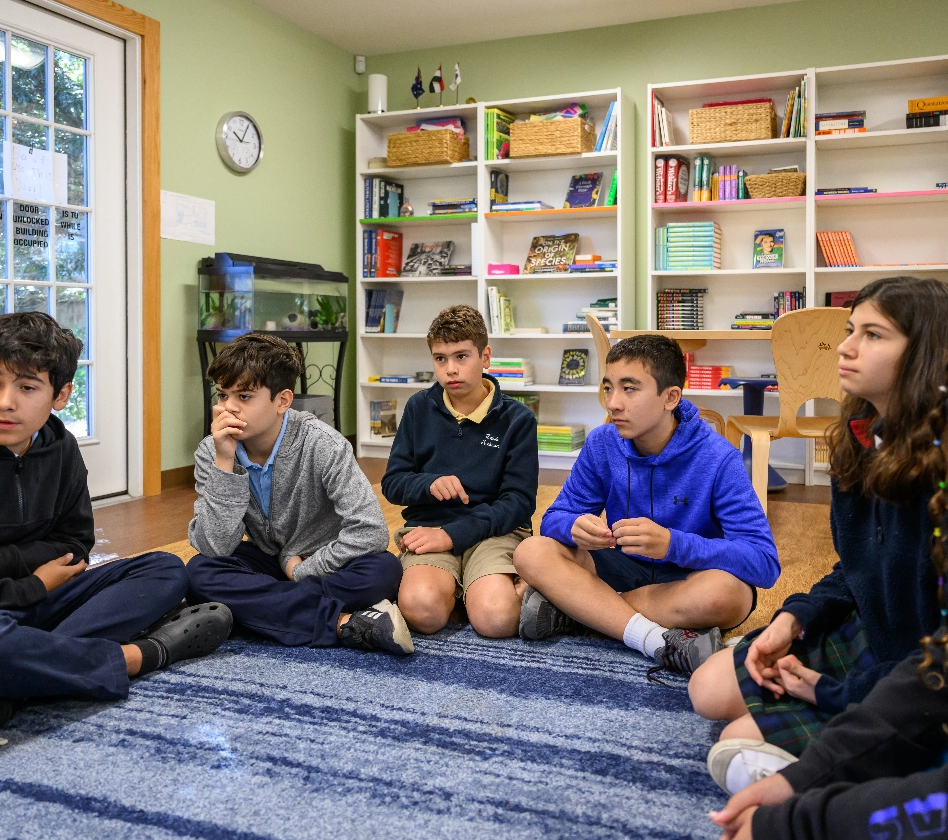
The Secondary Environment
The Montessori classroom environment is unique. It is characterized by a student-centered approach that enables students to manage time, exercise choice, organize themselves, and practice self-regulation within a group context. This development of independent self-management is crucial to succeeding in higher education and adulthood.
Multi-Age Groupings
In Montessori Secondary Programs, students are commonly grouped in 2- or 3-year age cohorts. For example, a school might offer grades 7 – 8 (Middle School) and grades 9 – 12 (High School).
These communities allow opportunities for collaborative work and student leadership through:
Uninterrupted Work Periods
The daily schedule allows for uninterrupted work periods of 2 hours or more in core curricular subjects—math, language arts, history or humanities, sciences, additional world languages, and creative arts. Uninterrupted work periods honor student choice, foster concentration, and support student engagement, while allowing for deep inquiry and a chance to work in collaborative project teams.
Spiral Curriculum
A “spiral curriculum” exposes students to many interrelated topics, repeatedly over time, resulting in broad and deep knowledge. Students are academically challenged and given reasonable opportunities for pacing work to meet their needs, while also learning responsibility, meeting deadlines, and mastering skills and concepts with the support and guidance of master teachers.
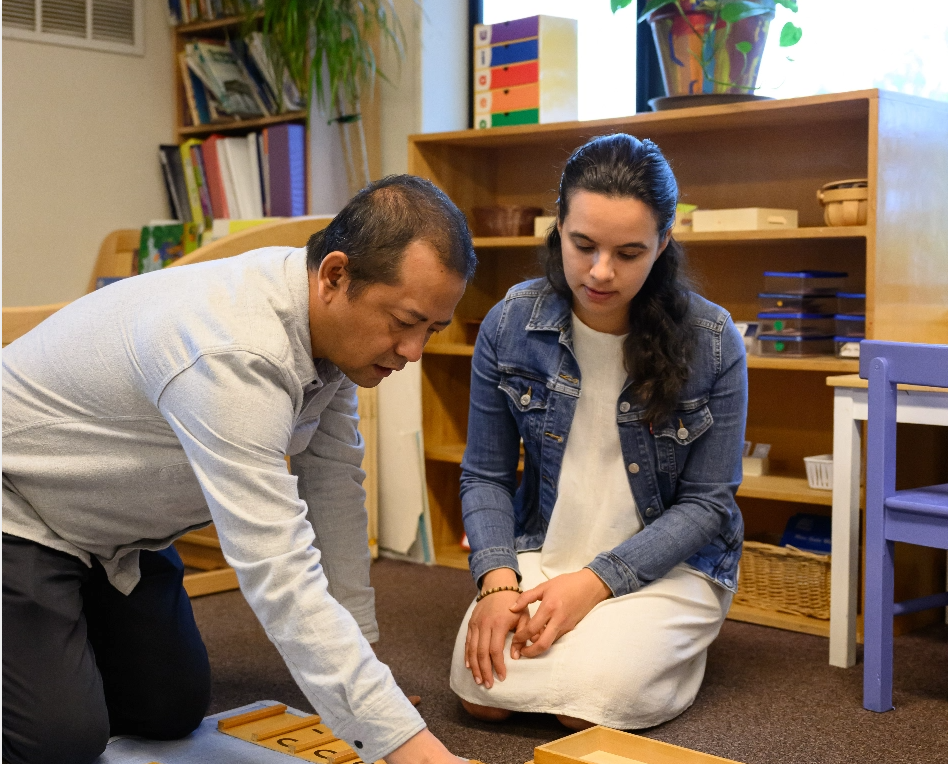
What Your Adolescent Will Learn
Montessori Secondary programs are rooted in hands-on, experiential learning. Your adolescent may have an opportunity to start a business, complete with developing a business plan and securing funding, or work as an apprentice to an expert in a field she loves.
The Montessori Secondary program also includes advanced courses in language arts, mathematics, sciences, and social studies that are academically challenging. In addition, students take specialized courses including world languages, visual and performing arts, health and fitness, and participate in field studies (such as apprenticeships) and service learning.
Montessori acknowledges the need of the adolescent to serve others, so service is taught as a way to care for the school community and the world outside the school. Through service, students learn the value of hard work, are exposed to lives and cultures different from their own, and develop a sense of empathy. Powerful, successful service projects teach students that they have agency in the world—they can identify things that need to change, and help change them. This is a skill that will serve them well as adults.
Secondary students complete complex projects—a culmination of learning—that include research and presentation and illustrate their mastery of concepts. Through all of their studies, tools (such as checklists, rubrics work plans, and study guides) promote time management, organization, and decision-making.
Additional components of the Montessori Secondary curriculum include:
- A community within the classroom that allows opportunities to participate in classroom government and other leadership experiences.
- Experiences in nature that cultivate respect for the environment.
- Micro-economic experiences such as developing and running a business to promote a genuine understanding of currency.
- Responsible and ethical use of technology, with the majority of the school day spent in learning activities and practices that require peer-to-peer and student-teacher interaction.
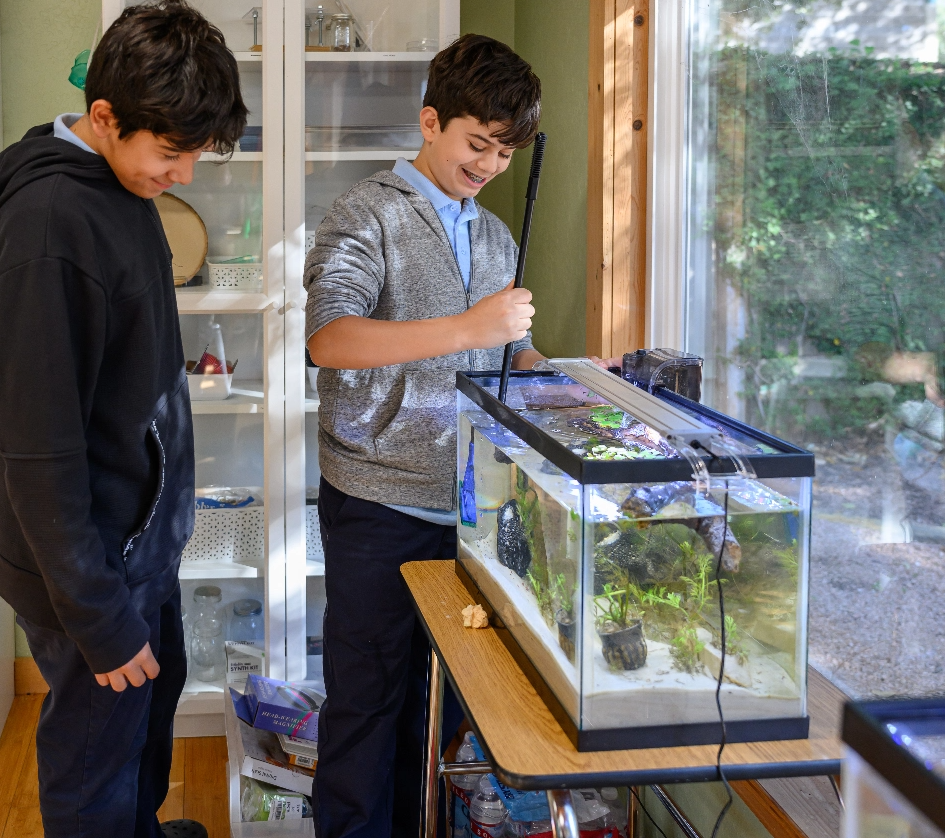
Supporting Adolescent Well-Being
Montessori Secondary educators respect the need for adolescents to have school/life balance, get adequate sleep, and maintain their love of learning. For these reasons, Montessori Secondary programs typically do not engage in “high stakes” testing and keep homework to a manageable amount.
Dr. Maria Montessori, the founder of the education system that bears her name, believed in giving adolescents the opportunity to experience self-worth through real and important work—a process she called valorization. The Montessori Secondary curriculum provides the opportunity for adolescents to realize they are strong, worthy, and capable of effort.
Montessori Secondary programs respond to the adolescent’s need to exhibit creativity, to problem solve, to take responsibility, and to claim independence. Ultimately, the programs support each student in finding a place in the community and in becoming a respectful, responsible, and ethical contributor to society. Isn’t this exactly what you want for your child’s teenage years?
Connect with us.
@americanmontessori
